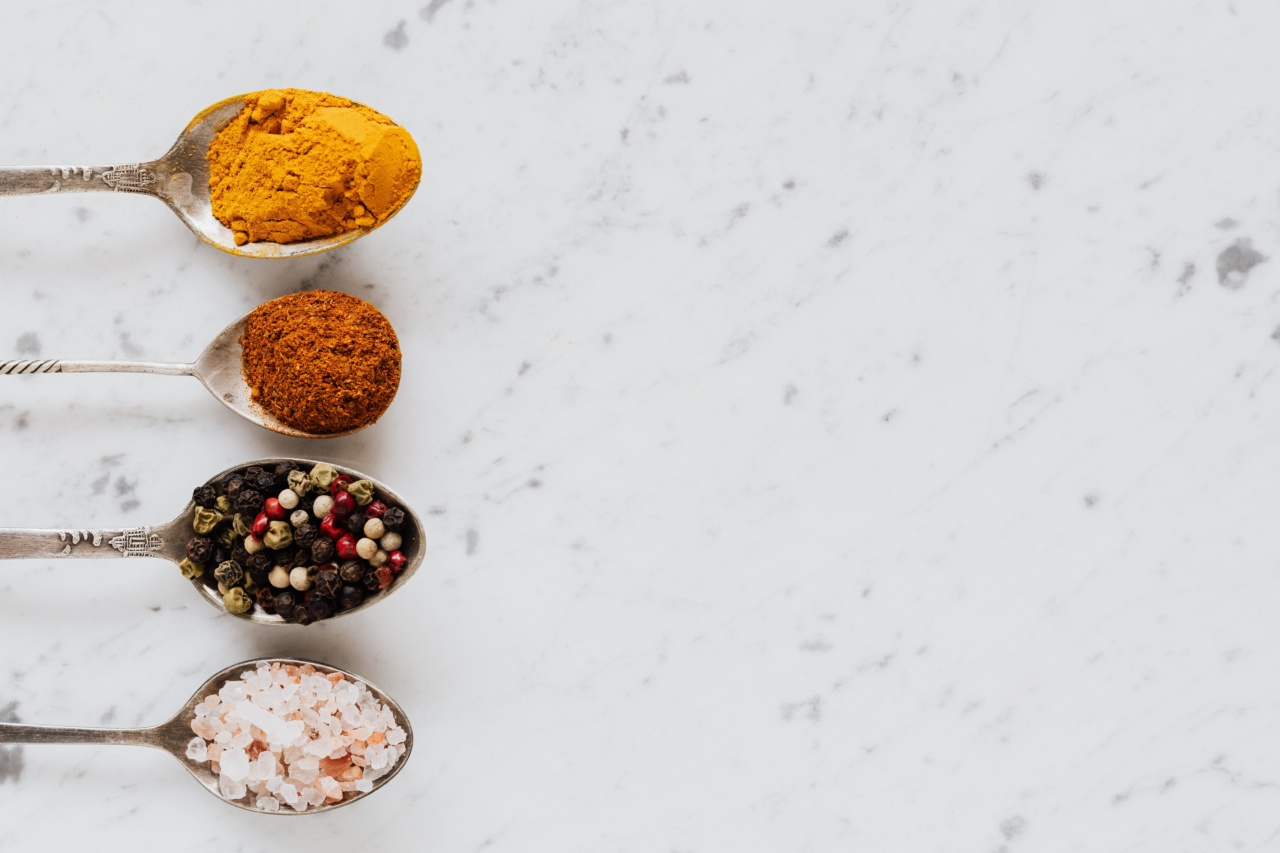Inflammation is a natural response by the immune system to protect the body from injury and infections. While acute inflammation is necessary for healing, chronic inflammation can lead to various diseases including arthritis, heart disease, and cancer.
Fortunately, there are several natural ways to combat inflammation, and one such powerful tool is the use of spices. Among the many spices known for their anti-inflammatory properties, one stands out as a true champion – turmeric.
What is Turmeric?
Turmeric, scientifically known as Curcuma longa, is a bright yellow spice that belongs to the ginger family. It is primarily grown in India, Southeast Asia, and other tropical regions.
Turmeric has been used for centuries in traditional Ayurvedic and Chinese medicine to treat various ailments and improve overall health.
The Active Ingredient in Turmeric
The active ingredient responsible for turmeric’s powerful anti-inflammatory effects is called curcumin. Curcumin is a polyphenol compound with potent antioxidant and anti-inflammatory properties.
It not only suppresses inflammation but also neutralizes harmful free radicals, protecting the body from oxidative stress.
Turmeric’s Mechanism of Action
Curcumin inhibits the activity of several molecules and enzymes involved in inflammation, most notably NF-kB, a protein complex that controls the expression of genes related to inflammation.
By suppressing the activation of NF-kB, curcumin reduces the production of pro-inflammatory cytokines and other molecules that contribute to the inflammatory response.
Scientific Evidence Supporting Turmeric’s Anti-inflammatory Effects
Turmeric’s ability to combat inflammation has been extensively studied in both animal and human research.
Numerous studies have demonstrated its effectiveness in reducing symptoms of chronic inflammatory conditions such as rheumatoid arthritis, inflammatory bowel disease, and asthma.
A randomized controlled trial involving individuals with rheumatoid arthritis found that curcumin supplementation significantly decreased joint inflammation and improved symptoms compared to a placebo group.
Another study on patients with ulcerative colitis, an inflammatory bowel disease, showed that curcumin supplementation led to a reduction in disease activity and improved quality of life.
Furthermore, research suggests that curcumin may help alleviate symptoms and reduce the inflammatory markers associated with asthma.
The anti-inflammatory and antioxidant properties of curcumin are also believed to contribute to its potential in preventing heart disease by reducing inflammation and oxidative stress in blood vessels.
How to Incorporate Turmeric Into Your Diet
Turmeric can be easily incorporated into your daily diet in various ways:.
1. Golden Milk
Golden milk is a popular traditional Ayurvedic beverage that combines turmeric with milk and other spices.
To make golden milk, heat a cup of milk (preferably plant-based) with a teaspoon of turmeric powder, a pinch of black pepper (which enhances curcumin absorption), and other desired spices like cinnamon and ginger. Sweeten with honey or maple syrup if desired.
2. Turmeric Tea
Brewing a cup of turmeric tea is another way to enjoy the anti-inflammatory benefits of this spice. Simply combine a teaspoon of turmeric powder with hot water, add lemon juice or honey for flavor, and let it steep for a few minutes.
You can also add ginger or cinnamon for added flavor and health benefits.
3. Turmeric in Cooking
Turmeric powder can be added to various dishes while cooking, including curries, soups, stir-fries, and roasted vegetables. It adds a vibrant color and a mild, earthy flavor to dishes.
For better absorption of curcumin, it is recommended to consume turmeric with black pepper or a source of fat such as olive oil or coconut milk.
4. Turmeric Supplements
If incorporating turmeric into your diet seems challenging, you can opt for turmeric supplements containing standardized curcumin extract.
However, it’s important to choose high-quality supplements from reputable brands and consult with a healthcare professional before starting any new supplement regimen.
Precautions and Considerations
While turmeric is generally safe for consumption, some individuals may experience mild side effects such as digestive issues or allergic reactions.
Additionally, high doses of curcumin supplements may interact with certain medications, including blood thinners and antiplatelet drugs, so it’s crucial to consult with a healthcare professional before consuming turmeric supplements.
Conclusion
Turmeric, with its active component curcumin, has gained significant attention for its remarkable anti-inflammatory properties.
Incorporating turmeric into your daily diet can provide multiple health benefits by reducing chronic inflammation and protecting against various diseases associated with excessive inflammation. Whether enjoyed as golden milk, tea, or added to food, turmeric is a spice that not only enhances the flavor of your dishes but also supports your overall well-being.




























